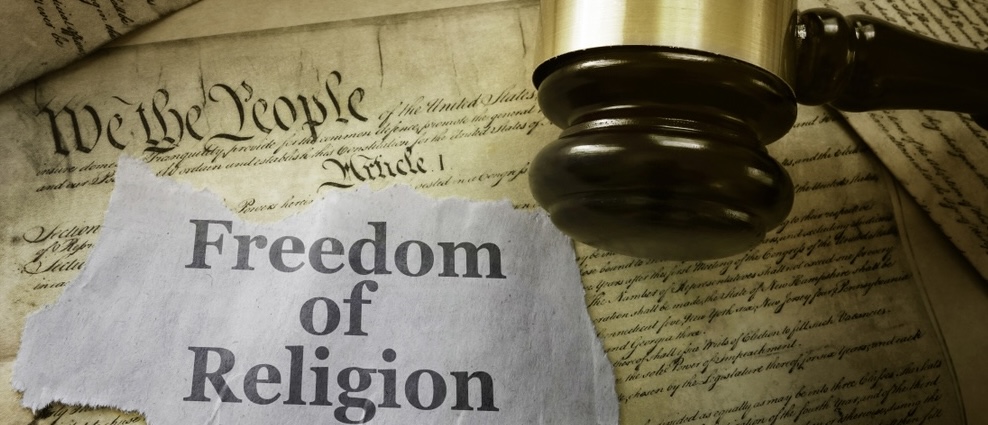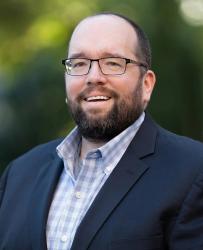As America nears the 250th birthday of her existence as a republic, there is no shortage of Americans fretting, wondering, and ruminating on not only its future but whether this experiment in ordered liberty is a worthy one. Witness the angst with which many celebrate the annual July Fourth holiday, peppering their social media posts with the usual caveats about how terrible America is. On the far left, movements like the 1619 Project proclaim the country fraudulent from the start, while on the far right some entertain notions of a magisterial Protestantism as a replacement for what is perceived as the failure of American democracy.
Enter Religious Freedom: A Conservative Primer by John Wilsey, historian and chair of the Department of Church History and Historical Theology at The Southern Baptist Theological Seminary in Louisville, Kentucky. Wilsey is up front about his ideology: He is a conservative, both politically and theologically, and believes the antidote for America’s ills is a robust application of Alexis de Tocqueville’s “spirit of religion and spirit of liberty.” Indeed, the author delivers a thorough and well-written primer for a new generation of conservatives.
In the introduction, he plainly states his thesis:
My argument for this book is simple. American conservatives are in the best position to articulate and defend the best of the American character by receiving, venerating, applying, and handing down the tradition of harmony between the spirits of liberty and religion.
The conservatism offered here is an unhyphenated one, in contrast to the fluid mix of -isms that animate the right currently. The book harkens to Edmund Burke, whose work Wilsey holds up as “the clearest and most reliable understanding of liberty, grounded in eternal truths and in the American experience.” Other inspirations include Russell Kirk, the aforementioned Tocqueville, and an obscure 20-century historian and thinker, Peter Viereck, the son of a German soldier and author of a Harvard dissertation contrasting the Western tradition and Nazism. In fact, Wilsey cites Viereck’s definition of “conservatism”:
conservative principles par excellence are proportion and measure; self-expression through self-restraint; preservation through reform; humanism and classical balance; a fruitful nostalgia for the permanent beneath the flux; and a fruitful obsession for unbroken historical continuity. These principles together create liberty, a liberty built not on the quicksand of adolescent defiance but on the bedrock of ethics and law.
Conservatism, Wilsey contends, is “about finding meaning beneath the flux.” Both the meaning (or religion) and the flux (liberty) animate the rest of the book as it offers reflections on such subjects as patriotism, the imagination, and history.
As to patriotism, Wilsey believes it is required for faithful citizenship and “involves sincere, yet ordered love for country” that demands both “celebration and critique.” Conservatism, then, preserves both the traditions and the foundations that rightly order liberty. It is this idea of order that necessitates the need for a thick religion—if not state ordained, at least flourishing in communities and families.
This highlights, then, the tension between progressivism and conservatism, with the former seeking to jettison moral traditions and norms as the other seeks to conserve them. Yet Wilsey is not spare in his critique of the modern-day right, including its tendency toward hucksterism and a failure to pass down the American tradition and story. “A retrieval of conservatism that inspires to conserve,” he writes, “is necessary to stave off the implosion of Western and American civilization as we know it.” This sober warning, however, does not mean Wilsey has joined the chorus of those who wish to abandon the American experiment altogether. Yes, “we need to know what time it is,” but in order to be sufficiently motivated to rediscover what made this country great: God, family, country, and our founding ideals. In short, the view of liberty in Religious Freedom resists all forms of both authoritarianism and individualistic libertinism.
As a historian, it might be the book’s chapter on America’s past that is the most valuable, with a helpful guide to evaluating America’s past sins. Conservatives “have a special interest in history because they, unlike progressives, are especially oriented toward the past and are disposed to revere tradition.” It’s a rebuke to the annoying “presentism” that is on offer today, where the current thing is either the best or the worst thing, and where historical reflection has all but escaped the reasoning of even our most serious thinkers.
History, according to Wilsey, is our guide, a way to approach current issues and problems with humility. He also urges readers to remember, in perusing our past, that “persons bear the image of God; they possess profound and invaluable dignity.” Historical thinking, he writes, “requires virtue if historical thinking consists in a pursuit of truth.” Wilsey advocates neither a whitewashing of American sins like slavery nor a chronological snobbery that sees no nobility in our forebearers. For this chapter alone, the volume is a worthy consideration for assignment in American history and political science classes.
Yet as much as Wisley reveres tradition, he asserts that prudence, informed by Christian wisdom, helps us separate those things worth conserving and those worth leaving in the past. This, he says, is mature thinking, a way to “put away childish things.”
Thus readers will find much to contemplate in his chapter on conservatism and religion. Echoing Tocqueville, Wilsey makes the case that a robust religious presence in the nation informs the conscience, acting as a check on the excesses of liberty. This Tocqueville (and Lincoln) labeled as “mores”—the customs and commitments of a community, often shaped subtly or subconsciously by people of faith.
Wilsey doesn’t quite declare America a Christian nation, but rightly follows historians such as Thomas Kidd, John Fea, and Mark David Hall who aptly see Christianity’s significant influence on the Founding. A belief in God is necessary for conservativism, even if conservatives aren’t all believing Christians, for it is a healthy fear of a transcendent Power that results in a more humble, and I dare say limited, approach to government power.
Here Wilsey the Baptist follows Tocqueville’s endorsement of disestablishment, opposing the nationalist dreams of a Christian theocracy but also the rootless secularism that Richard John Neuhaus rightly critiqued in his seminal The Naked Public Square. This is a needed word in a day when many, even many conservatives, are confused about Christianity’s role in that public square.
It is on the subject of Christian nationalism that Religious Freedom offers a refreshing and needed word opposing both the expansive left-wing assault on patriotism and the actual proposals for nationalism offered by writers such as Stephen Wolfe. The latter, though confined to a small cohort of reformed and Catholic academics, has gained purchase with many young people frustrated by the chaos of modernity. Readers will come away seeing both streams of thought as incongruent with the American project of ordered liberty as envisioned by the Founders and nurtured by our greatest leaders.
Religious Freedom could not have come along at a more important time. As the country celebrates two and a half centuries of existence, too many Americans are cynical about the goodness of the nation into which we’ve been born. Even many Christians have been conditioned toward ambivalence or even loathing of America, while others dream up an altogether new arrangement. For a theological, philosophical, and historical perspective on conservatism, American Christianity, and the American project in general, it would be hard to find a more important read. May it find readers who will take up the book’s stirring call to faithfully steward their citizenship.

